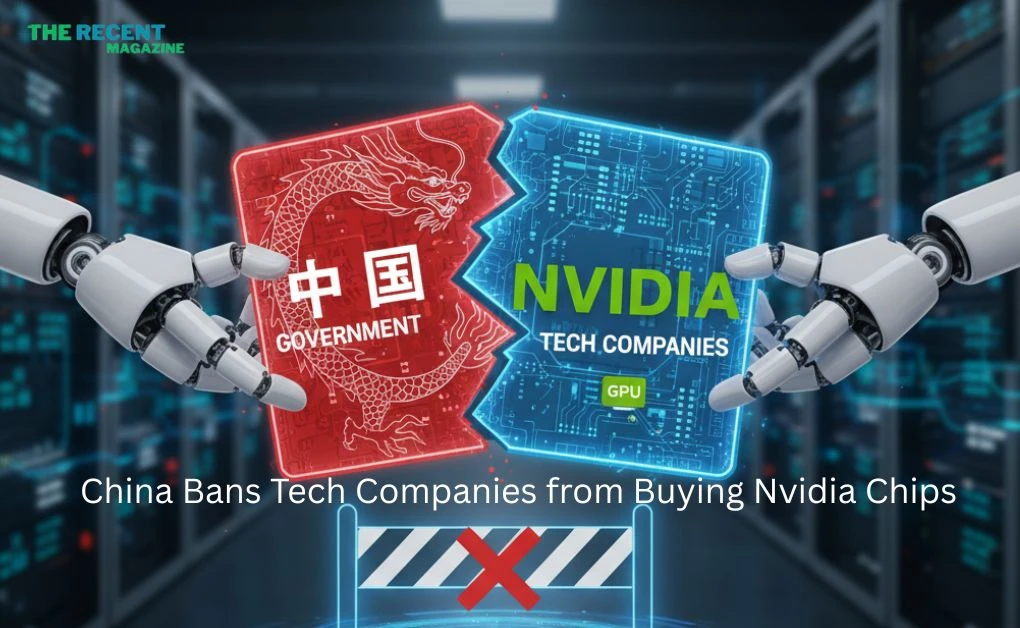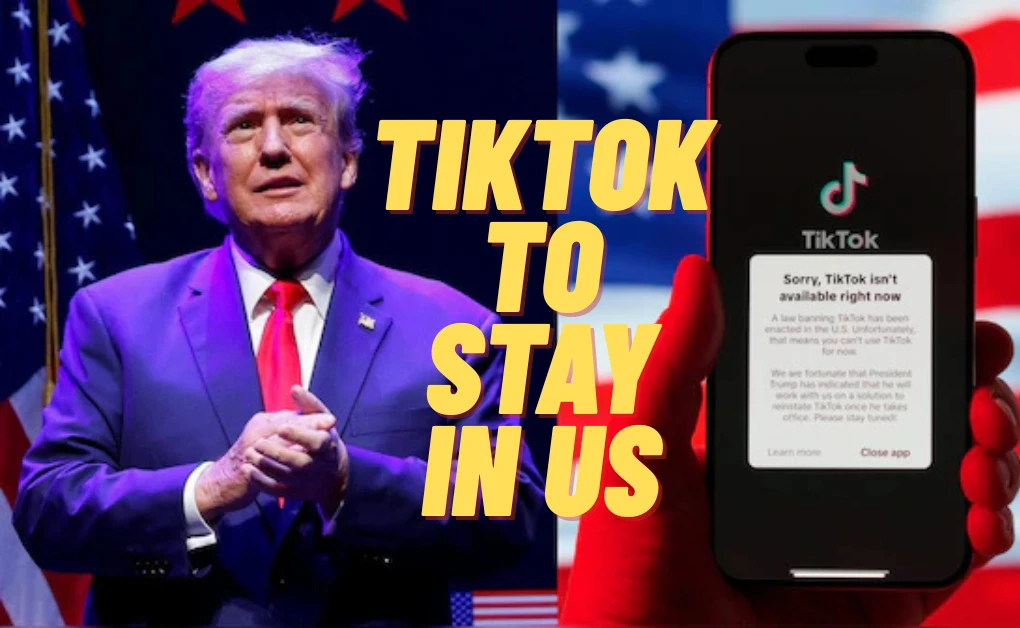Now Reading: China Bans Tech Companies from Buying Nvidia Chips
-
01
China Bans Tech Companies from Buying Nvidia Chips
China Bans Tech Companies from Buying Nvidia Chips

China has reportedly banned its domestic technology firms from purchasing Nvidia Chips, signaling a significant escalation in the ongoing global technology and trade tensions. The move is expected to have far-reaching consequences for the semiconductor industry, global supply chains, and companies relying on high-performance computing solutions. China Bans Tech
The ban reportedly affects a wide range of Chinese tech companies, including AI startups, cloud computing providers, and large-scale data center operators. By restricting access to Nvidia Chips, China is attempting to strengthen its domestic semiconductor development while navigating the complex landscape of U.S.-China technology competition.
Background on Nvidia Chips
Nvidia Chips are at the forefront of graphics processing and artificial intelligence applications. The company, renowned for its high-performance GPUs (graphics processing units), has seen skyrocketing demand for its products across multiple sectors, including gaming, data centers, and AI research.
Nvidia’s chips are critical for AI model training and deployment, making them indispensable in both commercial and research settings. As a result, restrictions on purchasing Nvidia Chips could significantly slow AI innovation and adoption in China, potentially creating gaps in global technological competitiveness.
Reasons Behind the Ban
There are several factors driving China’s reported decision to block domestic tech firms from buying Nvidia Chips:
- National Security Concerns: China aims to reduce dependence on foreign technology, particularly from the U.S., to safeguard its own strategic interests. By limiting access to Nvidia Chips, Beijing is promoting self-reliance in critical tech infrastructure.
- Supply Chain Resilience: The semiconductor industry has faced repeated disruptions due to geopolitical tensions. Restricting Nvidia Chips imports may encourage domestic companies to diversify their chip sources and accelerate the development of homegrown alternatives.
- U.S.-China Tech Competition: With U.S. export controls targeting China’s access to advanced chips, Beijing’s move can be seen as a countermeasure. By limiting purchases of Nvidia Chips, China positions itself to strengthen domestic chip capabilities in the face of international restrictions.
China’s New Chip Ban
China has introduced a new ban on tech companies buying Nvidia chips. This move aims to control advanced technology access. It affects many businesses in the tech sector.
The ban signals a shift in China’s tech policies. It impacts the supply chain and global chip markets. Companies must now adjust their plans quickly.
Details Of The Ban
The ban stops Chinese tech firms from purchasing certain Nvidia chips. These chips are mainly used for artificial intelligence and data centers. The government restricts sales of high-performance chips to China. This limits the use of advanced computing technology in the country.
Targeted Companies
The ban mainly targets Chinese companies involved in AI and cloud computing. Large firms in tech hubs like Shenzhen and Beijing face the biggest impact. Startups focusing on machine learning will also struggle to get these chips. The ban narrows options for hardware suppliers in China.
Government’s Objectives
China wants to protect its national security with this ban. It also aims to boost local chip production and reduce dependence. Encouraging homegrown technology helps China become more self-reliant. The government seeks to control tech flows that may affect its interests.
Nvidia Chips In Tech Industry China Bans Tech
Nvidia chips play a vital role in the tech industry. They power many devices and systems worldwide. From personal computers to massive data centers, Nvidia’s technology supports heavy computing tasks. Their chips enable faster processing and better graphics performance. This makes them popular among tech companies and developers.
The recent ban on Chinese tech companies buying Nvidia chips affects many sectors. Understanding Nvidia’s chip features and uses helps grasp the impact of this ban. The company’s place in the global market also shows why this move matters.
Key Features Of Nvidia Chips
Nvidia chips are known for their high speed and efficiency. They offer powerful graphics processing units (GPUs). These GPUs handle complex visual tasks easily. Nvidia also focuses on energy efficiency to reduce power use. The chips support advanced computing with many cores. This allows multiple tasks to run at the same time. Their design suits both gaming and professional use.
Uses In Ai And Data Centers
Nvidia chips are popular in artificial intelligence (AI) work. They help train AI models quickly and accurately. Data centers use these chips to manage large amounts of data. They improve server performance and speed. Many cloud services rely on Nvidia technology. This boosts the ability to process information and run AI applications. The chips also support machine learning and deep learning tasks.
Global Market Position
Nvidia holds a strong position in the global chip market. It competes with other major chip makers. The company leads in GPUs for gaming and AI. Its products are used worldwide by many businesses. Nvidia’s innovations keep it ahead in technology. This global reach increases the impact of trade restrictions. The ban on sales to China may shift market dynamics.
Impact On Chinese Tech Firms
China’s ban on tech companies buying Nvidia chips hits the industry hard. These chips power many devices and AI systems. Chinese firms face a tough road ahead.
Access to advanced hardware is critical for tech growth. The ban limits this access sharply. This restriction slows down product development and tech upgrades.
Challenges In Hardware Access
Chinese tech firms lose access to top Nvidia chips. These chips support AI and high-performance computing. Without them, many projects face delays or cancellations. Sourcing alternatives takes time and money. Hardware shortages create bottlenecks in production lines.
Potential Slowdown In Innovation
Innovation depends on powerful hardware. Limited chip access means slower research and development. New ideas take longer to reach the market. Competitors outside China may move faster. The tech gap between China and other countries could widen.
Alternatives And Workarounds
Chinese firms seek other chip suppliers. Domestic chip makers try to fill the gap. Some companies redesign products for older chips. Software optimization helps but cannot replace hardware power. Partnerships with non-restricted countries may rise.
Global Tech Market Effects
The ban on Nvidia chips for Chinese tech companies sends ripples through the global tech market. It changes how companies work and trade. The effects reach beyond China and Nvidia, touching many players worldwide. This shift forces businesses to rethink strategies and supply sources. It also impacts the pace of innovation and competition in the tech sector.
Shifts In Supply Chains
Supply chains face major changes due to the ban. Companies that relied on Nvidia chips seek new suppliers fast. Some may turn to alternative chip makers outside China. Others might invest in building local chip production. This disruption causes delays and raises costs. It pushes firms to create more flexible supply networks.
Responses From Competitors
Competitors see new openings in the market. Some chip makers increase production to fill the gap. They also speed up research to offer better products. Tech firms in China try to boost their own chip designs. This boosts competition but also raises tension in tech innovation. Companies watch each other closely, adjusting plans quickly.
Influence On International Relations
The ban complicates trade relations between countries. It adds pressure to ongoing tech and trade disputes. Governments may impose new rules or sanctions in response. Diplomatic talks could focus more on technology and market access. This situation shows how tech controls affect global politics. Countries may rethink partnerships and alliances in tech industries.
Future Of Semiconductor Trade
The semiconductor trade faces many changes after China banned tech companies from buying Nvidia chips. This move will impact global supply chains and market dynamics. Countries and companies must adapt fast to new rules and challenges.
Trade tensions may lead to more regulations and restrictions. Innovation and production could shift to different regions. The future of semiconductors will depend on how governments and businesses respond.
Possible Policy Changes
Governments might introduce stricter export controls on advanced chips. Some nations could create new trade agreements to secure supply. Policies may focus on boosting local chip manufacturing to reduce dependency.
Regulators might also encourage collaboration between domestic firms. This can help build a stronger, self-reliant semiconductor industry. Watch for updates on tariffs, licenses, and export limits.
Emerging Technologies In China
China invests heavily in developing homegrown chip technology. Research in AI chips, 5G, and quantum computing is growing fast. These technologies aim to replace foreign imports and boost tech independence.
Local companies are speeding up design and production capabilities. The focus is on creating efficient and affordable semiconductor solutions. This push could reshape the global tech landscape.
Long-term Industry Outlook
The semiconductor market may become more fragmented over time. Countries might build separate supply chains to protect their interests. This could lead to higher costs and slower innovation globally.
On the other hand, competition may drive new breakthroughs and investments. Firms will seek partnerships to stay competitive in a changing market. The industry’s future depends on balance between cooperation and competition.
Frequently Asked Questions
Why Did China Ban Tech Firms From Buying Nvidia Chips?
China banned tech companies from purchasing Nvidia chips to control advanced technology access. The move aims to protect national security and curb foreign influence in key industries.
How Will The Ban Affect China’s Tech Industry?
The ban may slow innovation and hardware development in China’s tech sector. Companies might face difficulties sourcing high-performance chips, impacting AI and computing advancements.
What Are Nvidia Chips Used For In Technology?
Nvidia chips power AI, gaming, data centers, and high-performance computing. They are crucial for machine learning, graphics processing, and advanced computational tasks worldwide.
Can Chinese Companies Find Alternatives To Nvidia Chips?
Chinese firms are exploring domestic chip alternatives but face challenges in matching Nvidia’s performance. The ban accelerates China’s push for self-reliant semiconductor development.
Conclusion
China’s ban on tech firms buying Nvidia chips changes the market. Companies must find new ways to get powerful technology. This move could slow down innovation in China’s tech sector. It also affects global chip supply and trade relations. Watch how companies adapt to these new rules.
The tech world will see shifts in power and strategy. This ban shows how politics can impact technology and business. China Bans Tech
Our all updete get to visit our website: therecentmagazine























